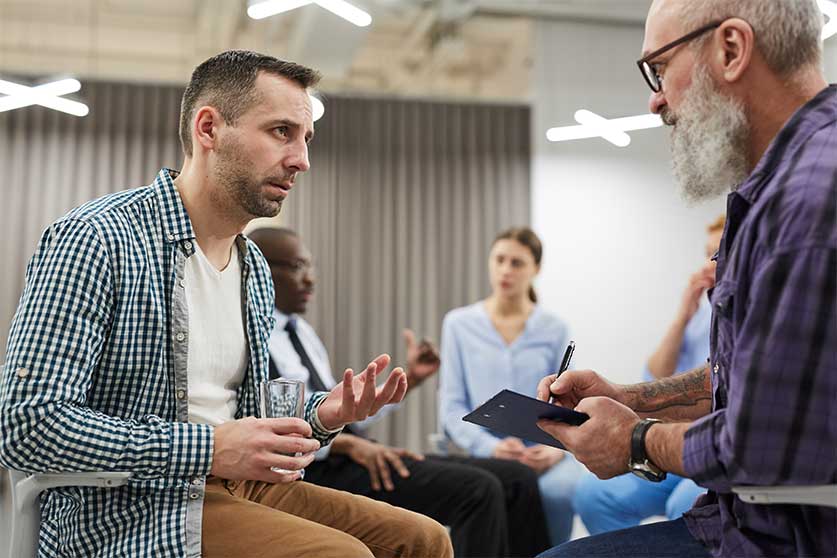Mental Health Care In Columbus, Ohio

Medically Reviewed By: Manish Mishra, MBBS
In Columbus, Ohio, many residents struggle with severe mental health conditions and do not receive the care, support, and treatment they may need to live a healthy life. Thankfully, Ohio Recovery Center can help with residential mental health care services.

According to a 2020 report published by the City of Columbus and Franklin County, nearly 1 in 5 Franklin County adults experience a diagnosable mental illness in the span of a single year.
To address these critical mental health needs, a variety of mental and behavioral healthcare options are available in Columbus and Franklin County, Ohio as well as central Ohio and northwest region.
This includes Ohio Recovery Center (ORC), a residential treatment facility located in Van Wert, approximately two hours northwest of Columbus.
Mental Health Care For Columbus Residents
Clinical depression is considered the most prevalent mental illness in Columbus and Ohio overall, followed by a wide range of other disorders, including:
- anxiety disorders
- attention-deficit/hyperactivity disorder
- bipolar disorder
- borderline personality disorder
- major depressive disorder
- obsessive compulsive disorder (OCD)
- post-traumatic stress disorder (PTSD)
- schizophrenia
- self-harm
- suicidal ideation
- trauma
We specialize in providing both mental and behavioral health services for these listed conditions and others in an inpatient setting.
Our local team includes psychiatrists, psychiatric nurse practitioners, behavioral/medical staff, master level clinicians, and case managers who develop individualized and comprehensive treatment plans to support your needs.
Our Mental Health Services
We understand just how confusing and distressing a mental health disorder can be, which is why the professionals here at ORC work so hard to make our mental health and addiction services as accessible, structured, and supportive as possible.
We can help you manage your condition, offering close supervision while you participate in leading, modern, evidence-based behavioral health services to support your overall wellbeing.
Short-Term Stabilization
A form of crisis intervention and bridge to other treatment services, short-term stabilization services provided by ORC are a potential alternative to psychiatric hospitalization and may include:
- psychiatric monitoring and evaluation
- daily living skills training
- social encounters
- counseling
- treatment planning
Medication Management
Determining the right combinations and dosage of anti-anxiety medications, antidepressants, antipsychotics, mood stabilizers, and other meds can be difficult and time-consuming.
Our psychiatric treatment team can help you through this process, making medication adjustments as needed.
Individual & Group Psychotherapy
Cognitive behavioral therapy (CBT), dialectical behavior therapy (DBT), eye-movement desensitization and reprocessing therapy (EMDR), exposure therapy, and other behavioral therapy and counseling services are available at ORC.
Our therapy options help those in treatment work past the damaging effects of psychological disorders and develop better patterns of thought and coping mechanisms for the future.
Psychosocial Treatments
Our psychosocial programs take advantage of our in-person residential setting to help you navigate your mental health concerns and recover, living as independently as possible after your program is completed. Psychosocial treatment options offered include:
- psychoeducation groups
- self-help and support groups
- coping skills development
- family services/family counseling
- vocational training
- independent living training
- case management
- aftercare planning
Wellness Activities
From exercise courses and nutrition support to yoga, meditation, art, and nature exposure, our wellness services aim to help you once again feel like yourself and to open your mind and heart to a brighter future as your recovery progresses.
How Our Mental Health Program Works
At ORC, we maintain 37 inpatient beds in gender-specific housing, dedicated to mental health patients only.
Our treatment system is designed as an intensive short-term program, usually lasting from 14 to 18 days, with residents participating in a regimen of mental health recovery services offered on our 55-acre campus.
Your treatment program progression may include:
Initial Assessment & Evaluation
Our intake and assessment process begins within the first 24 hours of admission. This process includes:
- a biopsychosocial assessment to gather information about your medical, psychological, and social history
- a review of medication to ensure that you are taking the correct medications
- a safety assessment evaluating your risk of harming yourself or others
- a Columbia assessment (C-SSRS), a tool that measures your risk of suicide and need for suicide prevention
Individualized Treatment Pathway
Once the assessments are complete, our staff begins individualized treatment planning, which may also include dual diagnosis addiction treatment planning if needed.
This plan is based on your specific individual needs and goals, as well as the latest evidence-based practices that include:
- cognitive behavioral therapy
- dialectical behavior therapy
- motivational interviewing
- community reinforcement approach
- family therapy
- 12-step facilitation therapy
Your plan may also include process group therapies such as psychoeducation group, skills development group, coping skills group, health and wellness group, and triggers group.
Aftercare Planning
ORC’s aftercare coordinator works with you to develop a personalized plan for ongoing support after your treatment stay. Our coordinator may recommend you to a variety of resources, including:
- medication-assisted treatment (MAT) for substance use disorders
- specialized grief/trauma therapy
- outpatient treatment through counseling centers, partial hospitalization programs, or intensive outpatient programs
- peer support groups and other community resources
- other medical or legal support
If you, a family member, or some other loved one in your life is living with an unmanaged mental health disorder, please know that you don’t need to keep going on your own. Connect with us today and let our team make a difference for you.
- City of Columbus https://www.columbus.gov/Reports-and-Data-Briefs/
- National Alliance on Mental Illness https://www.nami.org/About-Mental-Illness/Treatments
- National Library of Medicine: MedlinePlus https://medlineplus.gov/lab-tests/mental-health-screening/
- Substance Abuse and Mental Health Services Administration (SAMHSA) https://www.samhsa.gov/mental-health

